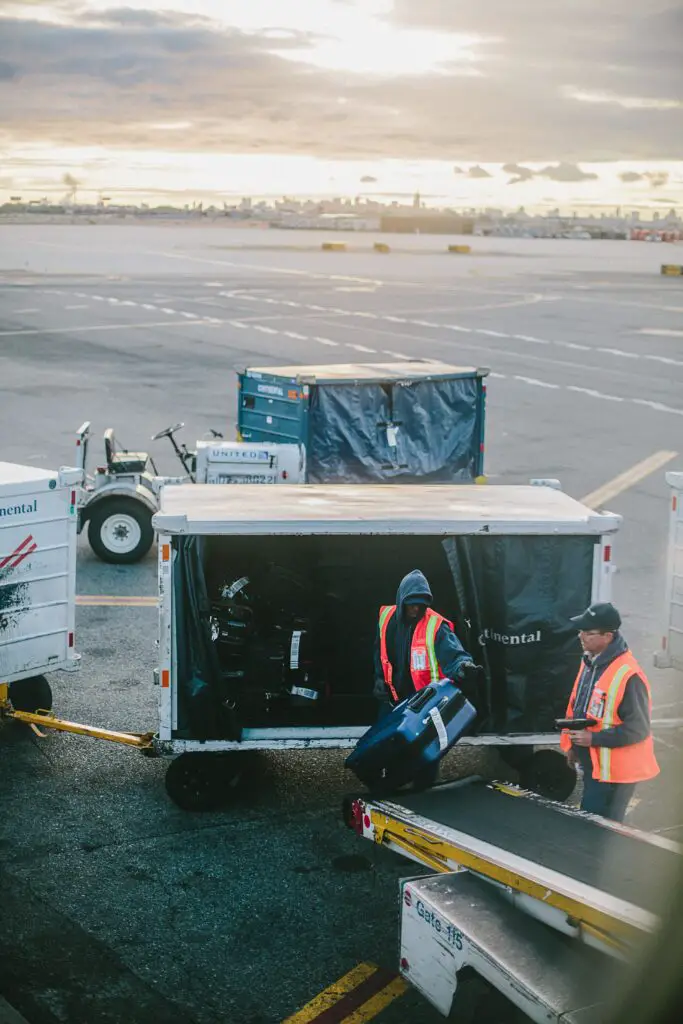Sorry, your flight has been canceled! The confusion, stress, and frustration –– it’s an unfortunately common experience for travelers when that dreaded alert comes through their phone. But what are the circumstances that lead to a flight being canceled, and is rain one of them?
Flights don’t always get canceled because of just rain. However, it plays a key role in flight cancellations, with more extreme weather like snow having a greater impact. Heavy precipitation affects a plane’s aerodynamic performance, making it more difficult for the pilot to maintain a safe flight.
Heavy rain isn’t the only weather-related factor that can lead to flight cancellations. In this comprehensive guide, I’ll explore several other reasons why flights get canceled and offer advice on how to be prepared for delays or cancellations.
Can Rain Cause a Flight To Be Canceled or Delayed?
Rain alone can’t cause a flight to be canceled or delayed. Canceling a flight due to rain requires a combination of other inclement weather conditions, such as thunderstorms, blizzards, and snow. These conditions reduce visibility, making it more difficult to safely operate the aircraft.
Additionally, the rain’s temperature is critical in a flight’s operations, especially on take-off and landing. If the rain is too cold, it can cause the plane’s wings to ice over and create dangerous flying conditions.
The same is true for hail — if it is too large or heavy, it can cause significant damage to the aircraft, potentially compromising its safety. That’s why airlines often cancel flights in these weather conditions.
Flight cancellation or delay, however, doesn’t just occur. Slight interference with an airline’s schedule can cause a domino effect of delays and cancellations, snowballing into an even bigger problem.
Highly skilled personnel in airport towers and traffic control centers gather and analyze information to predict the path of storms and coordinate with airlines to create a timeline for operations, allowing them to better prepare for the weather.
What Are the Other Reasons a Flight Can Be Canceled or Delayed?
Weather isn’t the only factor that can cause flights to be canceled or delayed. Other common causes of flight cancellation include:
Mechanical and Technical Issues
Aircrafts are an engineering marvel and require a staggering amount of upkeep and maintenance. Even the most reliable jets must be serviced and inspected regularly to remain operational.
Mechanical issues can be minor or severe and result from wear and tear, faulty parts, or improper maintenance. An aircraft that experiences mechanical failure is deemed unsafe and will often be canceled or delayed until the issue has been resolved.
Air Traffic Restrictions
Air traffic controllers ensure the safe and efficient flow of air traffic in a given airspace. They determine aircraft speed, altitude, and direction based on routes to avoid congestion, accidents, and other potential disruptions.
If an area becomes too congested, air traffic controllers can restrict the airspace, diverting incoming flights or canceling them altogether. Over the past decades, the exponential growth of air travel has increased the likelihood of air traffic restrictions.
Crew Availability

Pilots, cabin crew, and air traffic controllers are essential for the operation of an aircraft. Without them, a flight cannot take off or land safely. Therefore, if the crew is unavailable on a scheduled flight, the airline will often reschedule it for another time when they are available.
Medical emergencies, legal issues, go-slows, and miscommunications can contribute to crew unavailability.
Security Concerns
While air travel is generally considered safe, several security threats can also affect the flight schedule. Terror attacks, civil unrest, natural disasters, and suspicious packages can all lead to the temporary closure of airports or airspace.
Airlines are obligated to comply with security protocols to ensure the safety of their passengers and crew members, resulting in delayed or canceled flights.
Global Pandemic
When the COVID-19 pandemic hit, the airline industry was one of the hardest hit. Governments around the world implemented travel bans and restrictions to contain the spread of the virus, leading to an unprecedented number of flight cancellations. Many airlines were forced to halt operations and ground their fleets to comply with health and safety protocols.
What To Do When Your Flight Gets Canceled or Delayed
The thought of a flight cancellation is enough to send shivers down your spine. A delay will be inconvenient, but a full-fledged cancellation can be devastating. That’s why it’s important to know your rights and how to deal with these situations. Here are a few tips on what to do when your flight gets canceled or delayed:
Contact the Airline
As soon as you are informed of the delay or cancellation, contact the airline directly. You can get their contact information from your booking confirmation or their website. Ask them why the flight was canceled and what options are available to you. They may offer to rebook you on another flight, provide a refund, or other options.
Look for Other Flight Options
You don’t have to wait for the airline to offer you an alternative flight. Instead, you can quickly search for other flights on different airlines or airports. This will give you more options to choose from and help you find the best one. You can use sites such as Expedia, Skyscanner, and Kayak to compare prices and find the best deal.
Book a Hotel
You can book a hotel nearby if you are stuck at the airport due to a flight delay or cancellation. The frustration and discomfort of waiting in the terminal can be alleviated by getting a good night’s rest in a comfortable room. Many airline loyalty programs offer discounted hotel rates, so check to see if you are eligible.
Final Thoughts
The chances of rain causing a flight cancellation are slim unless it’s accompanied by inclement weather. Many other factors can contribute to a flight delay or cancellation, including mechanical issues, crew availability, and security concerns.
It’s essential to know your rights and how to deal with these kinds of situations so that you can minimize the inconvenience. Keep tabs on the weather and flight updates to ensure you’re prepared for any eventuality.
Sources
- U.S. Department of Transportation: Weather and Aviation: How Does Weather Affect the Safety and Operations of Airports and Aviation, and How Does FAA Work to Manage Weather-related Effects?
- Flight Safety Foundation: Key Safety Issues
- FAA: Facts about the FAA and Air Traffic Control
- The New York Times: Your Flight Has Been Canceled or Delayed. What Should You Do?
- U.S Department of Transportation: Refunds
- Expedia: Home
- Skyscanner: Home
- Kayak: Home


